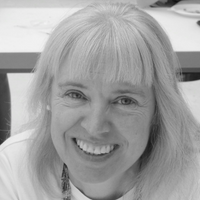
Louise Marlow
Professor of Religious Studies
Louise Marlow is Professor of Religious Studies and former Director of Middle Eastern Studies. She received her undergraduate degree from Cambridge University, where she studied Persian and Arabic, and her doctoral degree from Princeton University.
In much of her research, she has concentrated on the pre-modern Arabic and Persian literatures of political advice, often referred to as ‘mirrors for princes’. She is the author of Medieval Muslim Mirrors for Princes: An Anthology of Arabic, Persian and Turkish Political Advice (Cambridge: Cambridge University Press, 2023), Counsel for Kings: Wisdom and Politics in Tenth-Century Iran (Edinburgh: Edinburgh University Press, 2016), and Hierarchy and Egalitarianism in Islamic Thought (Cambridge: Cambridge University Press, 1997). She is the editor of The Rhetoric of Biography: Narrating lives in Persianate societies (Boston: Ilex Foundation and Washington, D. C.: Center for Hellenic Studies, 2011), Dreaming across Boundaries: The interpretation of dreams in Islamic lands (Boston: Ilex Foundation and Washington, D. C.: Center for Hellenic Studies, 2008), and, with Beatrice Gruendler, Writers and Rulers: Perspectives on their relationships from Abbasid to Safavid times (Wiesbaden: Dr. Ludwig Reichert Verlag, 2004). In her current research, she is exploring Arabic and Persian bilingualism and translation between Arabic and Persian, with a focus on the Mongol period in Iran (roughly 1250-1350 CE).
She teaches courses in Islamic cultural studies and Muslim ethics, as well as occasional courses in Classical Arabic literature and translation. Her courses include studies of the intellectual and cultural histories of Iran and Egypt, as well as seminars in travel literature, law, urban forms, and the study and representation of Islam and Muslims. In all her teaching she concentrates on historical contexts and the diversity across and within Muslim cultures.
Education
- B.A., University of Cambridge
- M.A., Princeton University
- Ph.D., Princeton University